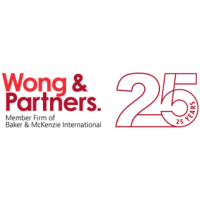

Vice president, general counsel | YTY Group




Jia Ling Chong
Vice president, general counsel | YTY Group
What are the most significant cases or transactions that your legal team has recently been involved in?
YTY’s legal department manages the Group’s legal affairs. The team is involved in various areas of law regarding the company’s manufacturing and operations. Over the past few years, the team has handled legal work related to the expansion of the company’s business portfolio, including the acquisition of sterilisation companies, technology acquisition and transfer, and product supply and distribution.
With the growing importance of social compliance in global business, our team has been heavily involved in this aspect, particularly in the strengthening of processes, policies and approaches related to upholding international labour standards, and explaining our desire to preserve the rights, liberties, and dignity of our valued employees.
Apart from the aforementioned, members of our legal team are also kept at the forefront of YTY’s business operations and actively participate in contract negotiations and meetings to review the commercial aspects of the deals. Our team members are trained to be business oriented while ensuring that the company complies with the law. We remain vigilant to any new legal developments relevant to our business and we often focus on delivering commercially viable solutions to business issues. Our legal team is also trained to explain complex legal issues in a simple and actionable way to help our business teams make informed strategic decisions within an acceptable legal risk profile.
How do you see the general counsel role evolving in Malaysia over the next five-ten years?
The demand for in-house counsel in Malaysia has grown exponentially over the past ten years. The role of general counsel (GC) has also evolved from being traditionally considered a “business blocker” whose function is limited to merely managing business-related legal risks, to now being an important business partner or “business enabler” who participates in corporate strategy and decision-making processes. The recent trend also shows that general counsels are now tasked with non-legal areas such as corporate governance, compliance, company secretaries, privacy officers, risk and insurance.
An effective GC is expected to work closely with the business teams to understand the issues at hand from a business perspective and produce viable and tangible solutions. The GC understands the business pressure points involved, strategies and objectives, and communicates the risks and legal issues involved in any decision to management. This enables management to make informed decisions within an acceptable legal risk profile.
GCs are influential, and their value needs to be recognised by board members, top leaders, CEOs, CFOs and chairmen. To achieve this goal, the GC must demonstrate added value to the company by providing responsive services and commercially viable solutions to business problems; provide context to every legal decision made and provide simple, clear and straightforward explanations of complex legal issues. They must also contribute to the development of the strategic direction of the business within the relative legal framework.
In general, what would you like to see change about the external law firms you use?
I believe that external counsel must understand who the audience or recipient of their legal advice is. If legal advice is to be delivered to in-house counsel, the focus must be on a resolution to the specific issues involved rather than generic, lengthy, and expensive legal advice. As a former legal practitioner, I understand the need to seek extensive advice to ensure that all angles are considered, and that legal advice is provided in a sound manner. However, when dealing with in-house counsel knowledgeable in the subject matter, he or she has considered the entire matter carefully and may only need re-affirmation of a specific area of concern.
Another area that I consider useful for external law firms is maintaining a good understanding of the client’s needs and having a good relationship with in-house counsel. Ad-hoc calls for quick advice should be available, and the placement of a legal practitioner from an external law firm as a business liaison officer with corporate clients is essential. This way, whenever a client has a legal issue, the business liaison officer will be the first point of contact to recommend the appropriate attorney to handle the matter.